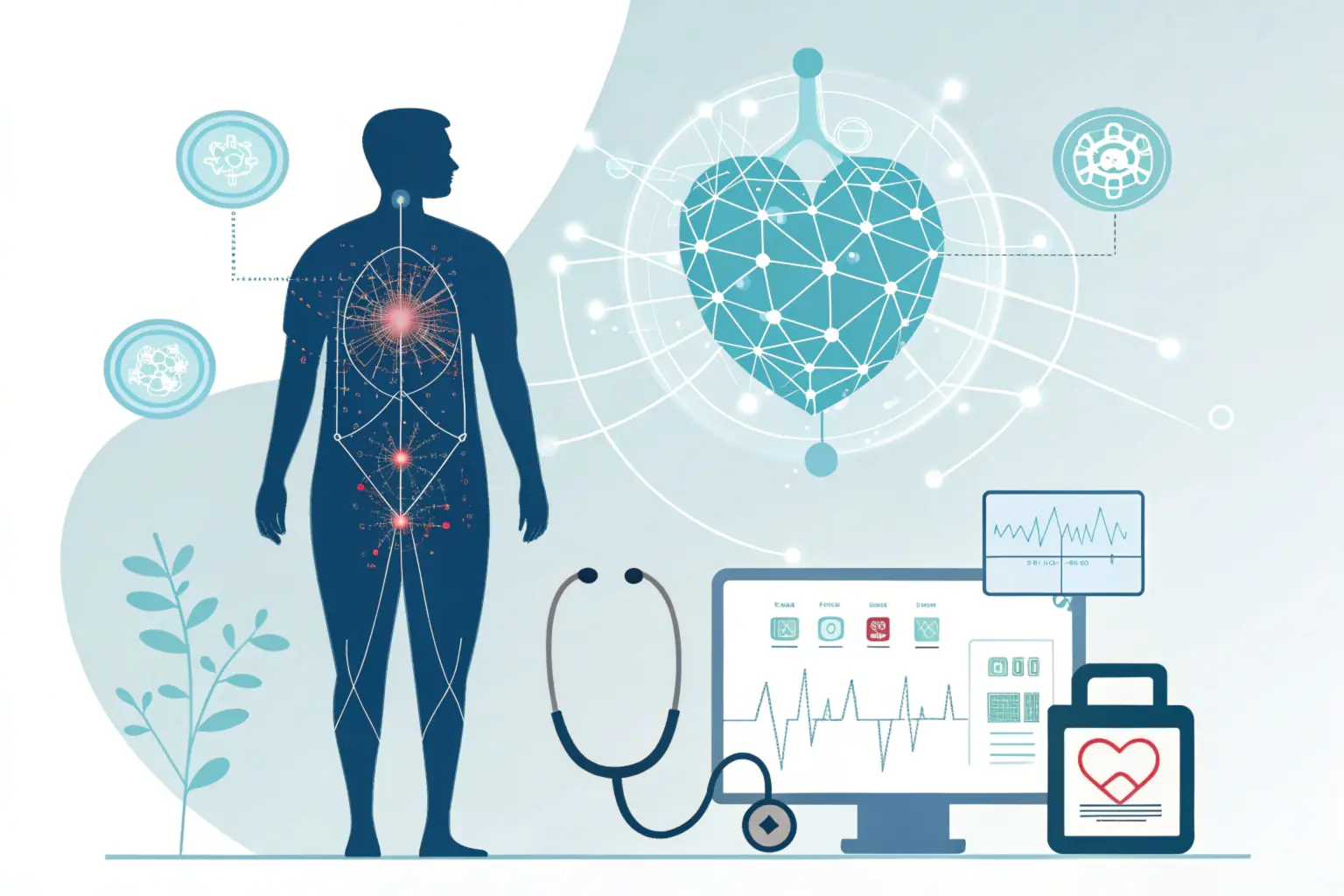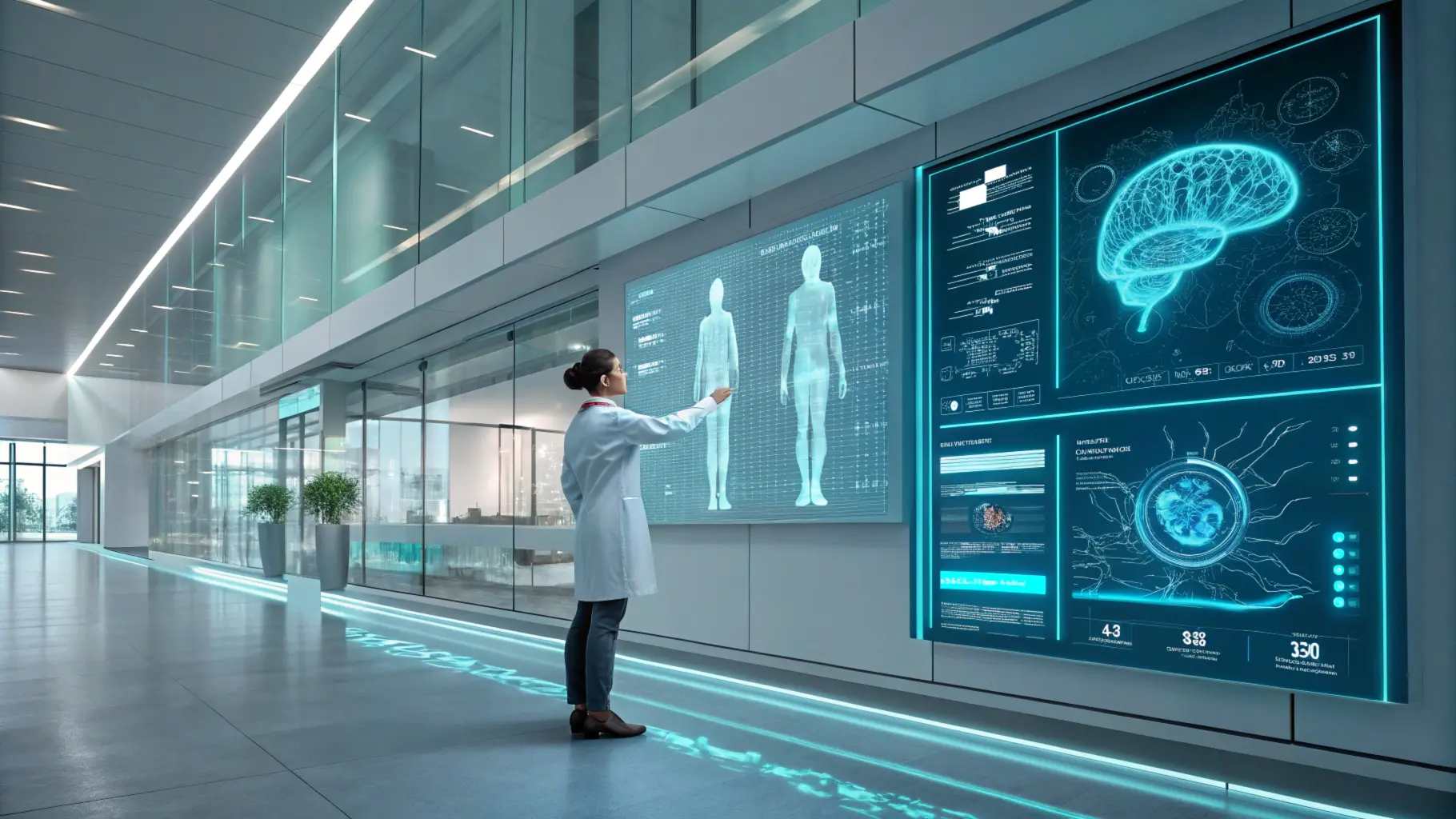Table of contents
- Precise Diagnoses and Personalized Treatments
- Robotic Assistance in Surgery and Disease Prediction
- Natural Language Processing (NLP) in Healthcare
- Public Health and Accelerated Drug Development
- AI Shapes the Future of Medicine
Precise Diagnoses and Personalized Treatments
One of the biggest breakthroughs in AI’s application in healthcare lies in improving diagnostic procedures. AI systems can analyze enormous amounts of data, including genetic information, medical histories, and radiological images, recognizing patterns that would be barely visible to humans. This leads to faster and more precise diagnoses, which is particularly crucial in complex disease patterns such as cancer.
In a recent skin cancer diagnosis project, AI uses high-resolution images and patient-specific data to identify suspicious skin changes. The AI models often detect melanomas at an earlier stage than conventional methods, enabling more targeted and individualized therapy. This is an example of the potential of personalized medicine, where AI helps to precisely match treatments to the patient, increasing both effectiveness and minimizing side effects.
Another significant field is AI-supported genome analysis, where individualized treatment plans are developed. These therapies, tailored to the patient’s genetic structure, open up completely new treatment possibilities that specifically address each patient’s biology and could bring about a paradigm shift in oncology.
Robotic Assistance in Surgery and Disease Prediction
In surgery, the integration of AI-controlled robotic systems opens new dimensions of precision and safety. Robots like the da Vinci system enable surgeons to perform minimally invasive procedures with accuracy that human capabilities alone cannot achieve. These systems use image processing and sensors to support surgeon movements and avoid tremor-related errors. Simultaneously, they provide real-time data that optimize decision-making during surgery.
Beyond surgery, AI can develop predictive models that can forecast disease progression. This is achieved by analyzing patient records, genetic data, and behavioral patterns. An AI application in cardiovascular diseases, for example, evaluates cardiological data and lifestyle information to determine a patient’s individual risk. These preventive approaches can prevent diseases from developing or enable early detection, allowing treatment at a less dangerous stage.

Natural Language Processing (NLP) in Healthcare
Natural Language Processing (NLP) represents a key technology for making the vast amounts of unstructured data in medicine usable. Medical reports, scientific literature, physician notes, and patient records often contain crucial information that is enormously valuable to healthcare personnel. NLP systems can analyze this data in seconds and extract relevant information, leading to significantly improved decision-making.
One of the most impressive examples of NLP use in healthcare is the automated analysis of patient records, where AI models filter and structurally prepare important data from handwritten notes or unstructured texts. This enables doctors to access crucial information more quickly and make diagnostic or therapeutic decisions faster and more accurately. Additionally, NLP-supported systems can be used in scientific research to automatically summarize relevant studies and clinical results and incorporate them into clinical decisions.
Public Health and Accelerated Drug Development
AI has shown its importance for managing public health crises during the Corona pandemic. From monitoring epidemiological data to rapidly adapting testing strategies, AI has played a crucial role. Experiences in collaborating with health authorities and clinics have shown that AI-supported models enable more effective and proactive health monitoring. These models analyze data from various sources, including mobile health applications, epidemiological studies, and hospital records, to provide real-time insights that improve decision-making.
AI is also revolutionizing the process in drug development. Through analyzing vast amounts of genetic and clinical data, potential active ingredients and therapies can be identified faster than ever before. This significantly shortens development times, which has proven indispensable in crisis situations, such as the rapid development of vaccines.
AI Shapes the Future of Medicine
Artificial Intelligence is more than just a trend – it’s an essential driver for the advancement of modern healthcare. Through precise diagnoses, tailored treatments, and innovative technologies like robotic surgery and NLP, patient quality of life is improved and medical processes are significantly optimized. Working with leading AI technologies and successful projects in medical development shows that AI is sustainably changing the future of healthcare.
How we can support you: We have already gained comprehensive experience in developing and implementing AI-based solutions in healthcare. Whether precise diagnostic tools, automated processes, or AI-supported surgery – we are ready to develop and integrate customized software solutions for your company’s specific needs. Our expert team accompanies you on the path to optimal utilization of AI technologies to increase the efficiency and quality of your medical services.
